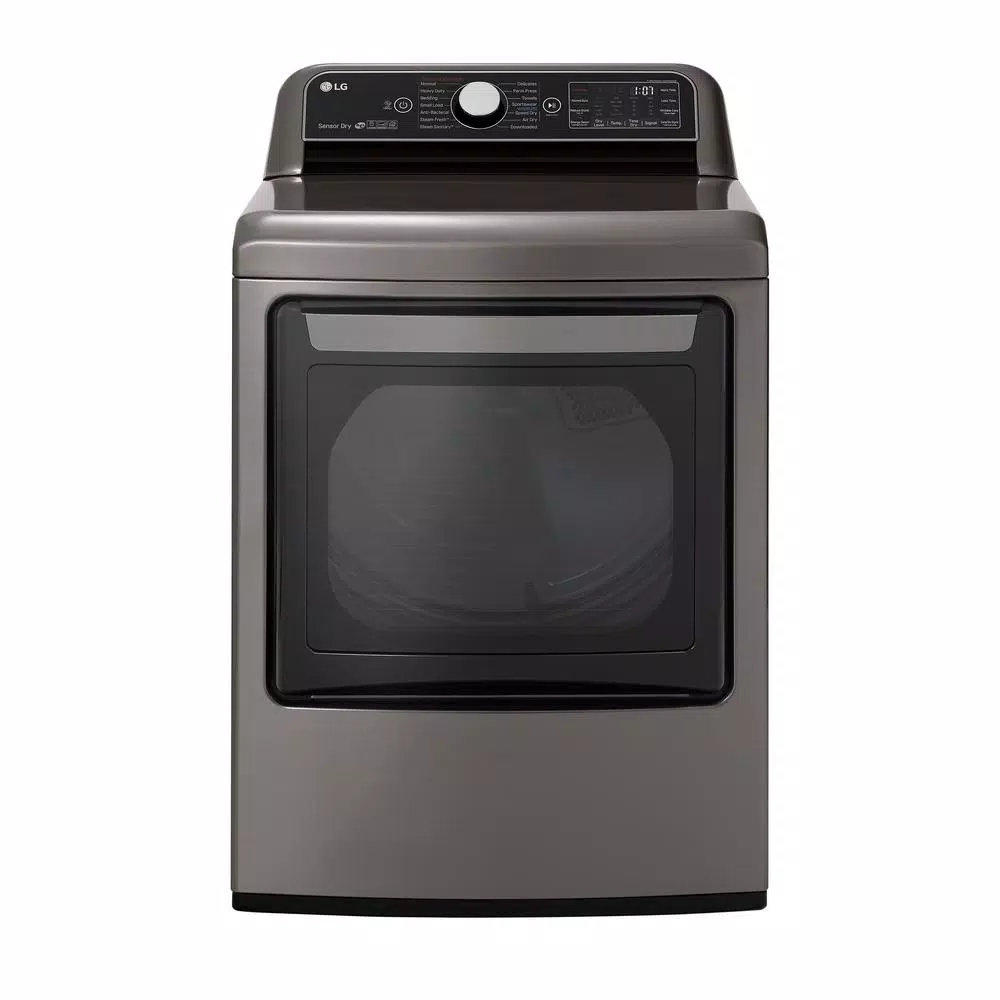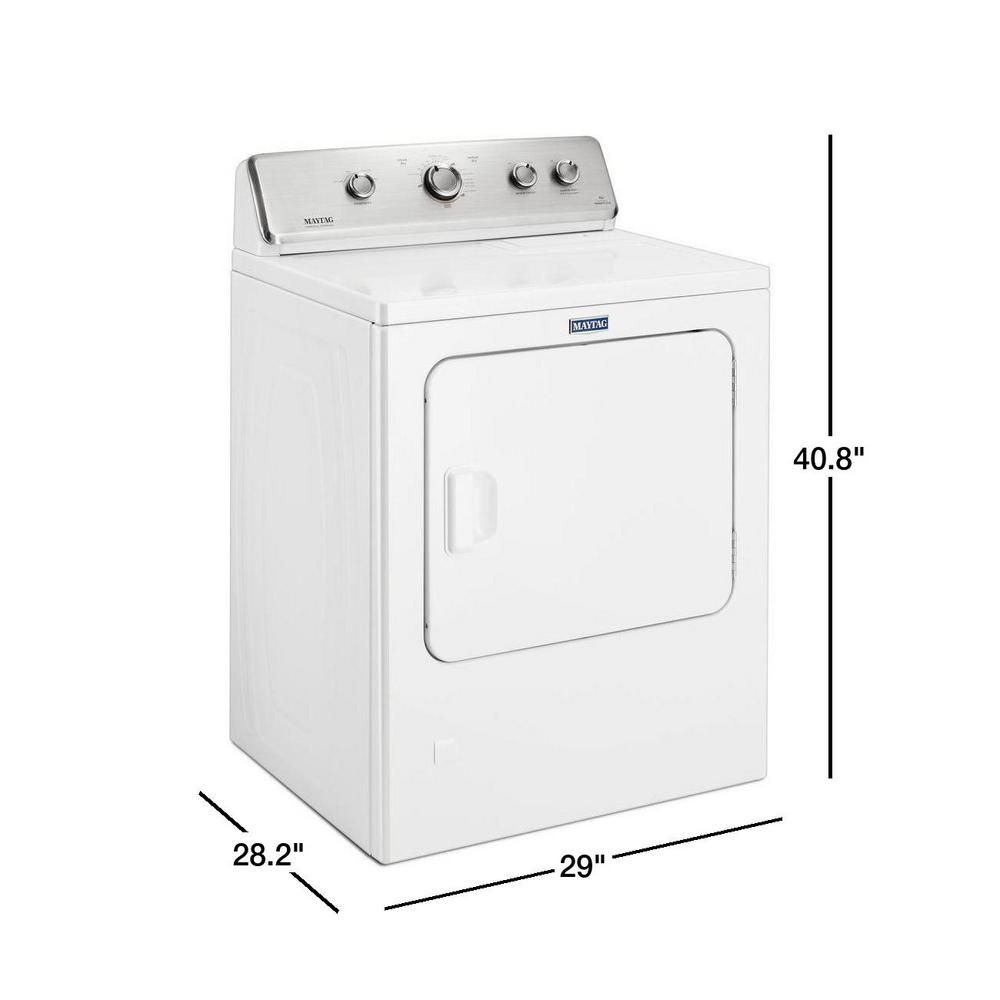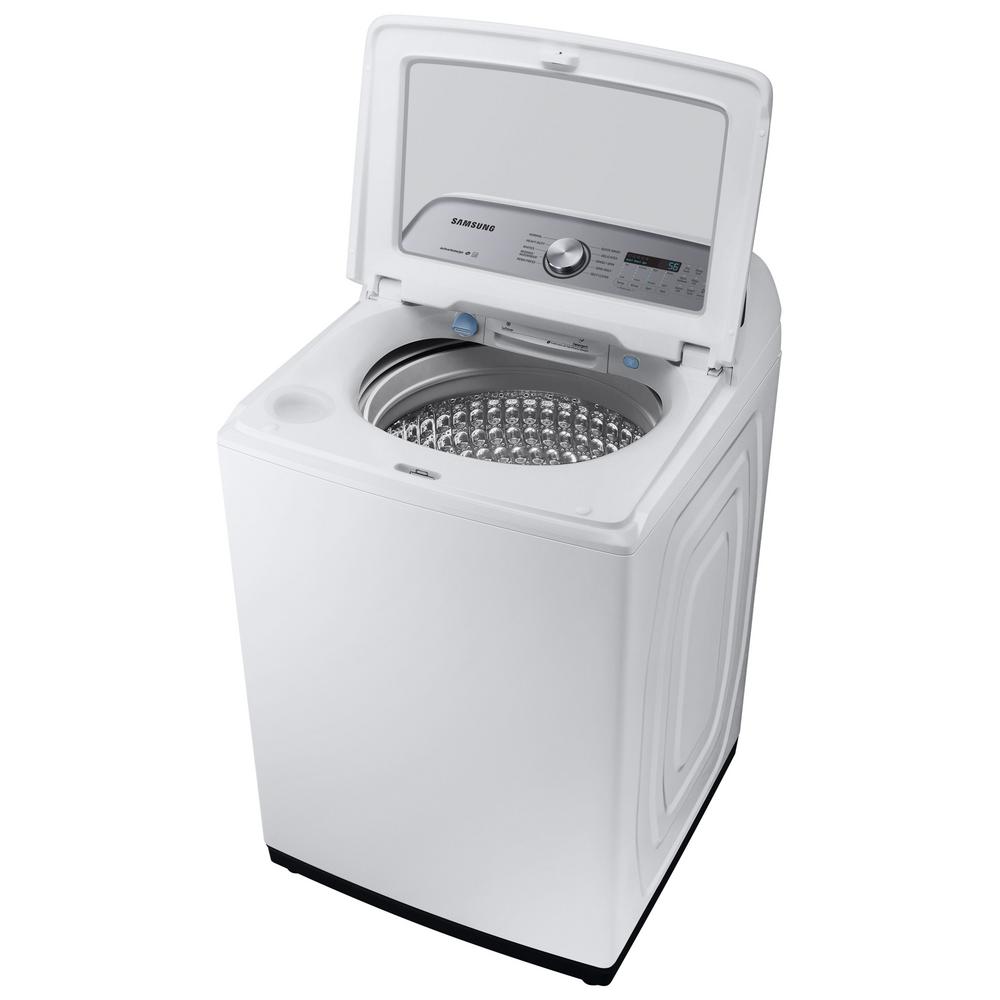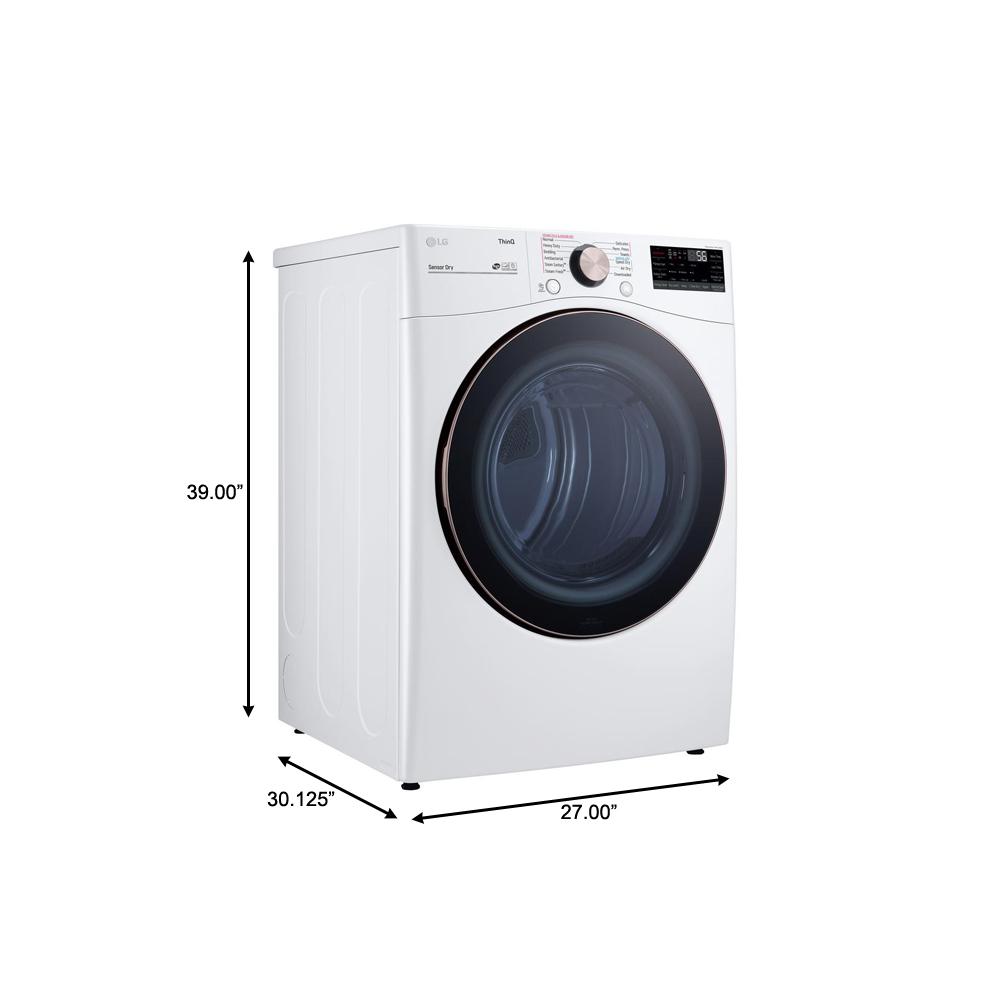LG 7.3 cu. ft. Ultra Large Smart Front Load Electric Dryer w/ EasyLoad Door, TurboSteam & Wi-Fi Enabled in Graphite Steel
LG TurboSteam dryer generates real steam to reduce wrinkles. Loading & unloading dryer is easier w/ EasyLoad dual door opening. Smart Home enabled to operate and troubleshoot remotely with app.
LG Steamdryer with 7.3 cu. ft. of capacity, this dryer handles really large loads. Saving you time and energy. LG SteamFresh cycle refreshes clothes and reduces wrinkles in just 20 minutes, so your favorite outfit is always ready-and you can give the iron a rest. And with SteamSanitary cycle, you can safely sanitize throw pillows, toys and other delicate with the touch of a button. With features like the Dual LED Display indicators and intuitive Dial-A-Cycle controls, youll find the right setting every time.
- With 7.3 cu. ft. of capacity, this dryer handles really large loads. Saving you time and energy. With 14 drying cycles, including casual, heavy duty, bulky/bedding, cotton/normal, delicate and sportswear provides the best performance for your laundry options
- 14 drying cycles with Sensor Dry including: Cotton/Normal, Permanent Press/Casual, Heavy Duty, Bulky Bedding, Delicates, Anti-Bacterial, Towels, Small Load, Sports Wear, SteamFresh, SteamSanitary
- Manual Dry Options: Speed Dry, and Air Dry, to address a variety of fabric types and conditions
- Neverust Stainless Steel Drum is built to keep drying your clothes more efficiently without showing wear and tear
- Intelligent electronic control panel with a dual LED display for easy operation. Dial-a-Cycle setting helps you set the dryer and go
- Steam technology gently but powerfully penetrates fabrics to virtually eliminate dirt, odors and wrinkles
- 5 temperature settings with 5 drying levels (very dry, more dry, normal dry, less dry, damp dry) help you provide proper fabric care
- LG LoDecibel motor for quite operation. Chances are you may not even notice it running
- SteamFresh cycle helps you refresh and reduce wrinkles in up to 5 garments at 1 time with a single 20-minute dryer cycle
- End-of-cycle signal provides an audible alert that the dryer cycle is finished
- With TurboSteam technology, your shirt is back in tip-top shape in just 10 minutes, it also helps refresh fabrics and reduce wrinkles in half the time of other steam settings
- SteamSanitary cycle safely sanitizes items marked as non-washable
- Inverter Direct Drive Motor is backed by a 10-year limited warranty
- Dryer duct and electrical cords are required for installation and will be offered separately during appliance checkout
- Custom program option helps you customize a program with the push of a button
- Backed by a 1-year LG parts and labor warranty
- Setup an LG Service Appointment to reverse the EasyLoad™ dryer door, free of charge, Monday-Friday (excluding Public Holidays) 8:00 am to 6:00 pm CST at 800-243-0000. Reference MODEL# DLEX7800VE.
- Energy Star
- Air Fry tray sold separately (Model # LRAL302S)
Additional information
| Depth With Door Open 90 Degrees (In) | 50.25 |
|---|---|
| Door Opening Height (In.) | 17.75 |
| Door Opening Width (In.) | 19.5 |
| Product Depth x Height x Width (in.) | 29.5 x 44.25 x 27 |
| Certifications and Listings | CSA Listed,Energy Star |
| Manufacturer Warranty | 1 Year Parts and Labor |






by Mike
Excellent product, my wife so happy to use it!!!.
by James
The only complaint I have is that it’s too deep.. It’s super hard to reach the bottom when I’m only 5”2.. But other than it works great thus far.
by Julie
This the best dryer I’ve ever owned! Its efficient, dries the clothes evenly and quickly. And its pretty as dryers go!
by Daniel
This machine has been excellent for the short time we have owned it.
by Nick
Good machine ,quiet and very efficient.
by John
Dryer is quiet and easy to program.